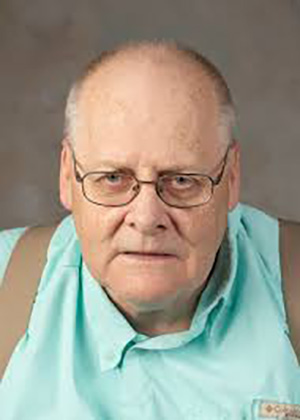By GREG MARKLEY
Gossip and conspiracy theories are part of human nature when it comes to campaigns and elections. This can lead to misinformation (misleading information created or disseminated without maliciousness) or disinformation (deliberate, orchestrated attempts to confuse or manipulate via dishonest information). It is seen in all sectors of society, irrespective of one’s personal characteristics.
This was even true in a Top Secret Army “listening post” on a high hill in Turkey. I was the newspaper editor there in 1982-83 and the way information was passed on unvetted was astonishing. The problem: many soldiers and civilians had too much time on their hands and not a heck of a lot to do, in the brutal winters. So I wrote a column titled “Rumor Mill on the Hill.” I reminded readers that rumors are destructive both in individual lives and for national defense
Misinformation and disinformation grow like kudzu in politics. To remedy this, Alabama Secretary of State John Merrill produced a 31-page booklet called “Alabama Election Access vs. Election Security.” It is available at sos.alabama.gov and discusses voter fraud, voter rolls, absentee voting and Election Day. Published this month; it’s easy-to-read and most helpful.
“During the age of misinformation and disinformation, voters everywhere should be reminded that election officials are the trusted sources for election information,” Merrill explains. “Our office works diligently each and every day to see that voters in Alabama are educated with the most accurate and up-to-date information related to elections.”
Merrill emphasized that misleading information spreads daily through social media and text messaging. Voters need to know that AlabamaVotes.gov is their trusted source for election information. As for voter fraud, the Brennan Center for Justice, a nonpartisan law and policy institute based at New York University, wrote an article called “The Myth of Voter Fraud.”
“Politicians at all levels of government have repeatedly, and falsely, claimed the 2016, 2018 and 2020 elections were marred by large numbers of people voting illegally,” the Center reports. “However, extensive research reveals fraud is very rare, voter impersonation is virtually nonexistent and many instances of alleged fraud are, in fact, mistakes by voters and administrators. Most allegations of fraud turn out to be baseless.”
Merrill’s booklet has a Voter Roll Rumor Mill, listing the top five rumors about voting. Which do you think is the most common rumor? Is it “Dead voters remain on the voter rolls,” “You are able to register to vote and vote in multiple places in Alabama” or “Non-citizens are allowed to register to vote and participate in elections?” How about: “Someone may register to vote in my name,” or “Alabama removes voters that do not deserve to be removed from voter rolls?”
The answer is “Non-citizens are allowed to register to vote and participate in elections.” That’s not true: State law only allows qualified Alabama citizens to vote. The second most common rumor is: “You are able to register to vote and vote in multiple places in Alabama.” That’s as false as the rumor that Elvis Presley is alive. Why? Because Alabama has a centralized voter registration database, where all records are maintained. All five rumor mill items are false.
Former President Barack Obama said, “There’s no such thing as a vote that doesn’t matter.” Sometimes that is true even for noncitizens, according to the online Encyclopedia of American Politics (Ballotpedia). As of June this year, a dozen municipalities countrywide allowed noncitizens to vote in local elections. The ones identified were Maryland, which had nine, Vermont with two municipalities and the city of San Francisco, California. Judging from those states, giving noncitizens the right to vote must be a cause celebre among progressives.
The Pew Research Center noted that there were approximately 25 million noncitizens living in the U.S. as of 2017. (That is just four million short of Texas’ population.) That noncitizen total included 12.3 million permanent residents and 2.2 million temporary residents in the country with legal permission and 10.5 million living in the U.S. without legal permission.
The secretary of state’s new publication indicates high turnout — 62.8 percent of registered voters, as showing wide confidence and trust in the 2020 election. Election Day saw 2,329,114 registered voters casting a ballot. They may have learned that between April 7, 2015 and Aug. 12, 2021, the state of Alabama processed 1,602 complaints, with six convictions, two overturned elections and one public official removed within that six-year period.
In addition to the new Misinformation and Disinformation booklet, the secretary of state’s office has the Alabama Voter Guide 2020 and the Alabama Polling Guide 2022. Both are available at www.sos.alabama.gov. For further help, go to ALABAMAVOTES.GOV and STOPVOTERFRAUDNOW.COM.
The Cold War ended 30 years ago. (In some maudlin way I miss it, as it was fascinating to be part of a giant historical event like that.) No longer do Americans live and work at the “Rumor Mill on the Hill” in Sinop, Turkey. Today we don’t need more rumor mills on hills. We do need mountains of true information.
Greg Markley first moved to Lee County in 1996. He has Masters’ in education and history. He taught politics as an adjunct in Georgia and Alabama. An award-winning writer in the Army and civilian life, he has contributed to the Observer for 11 years. gm.markley@charter.net .


